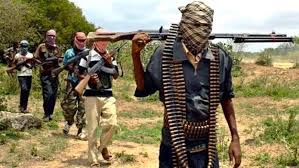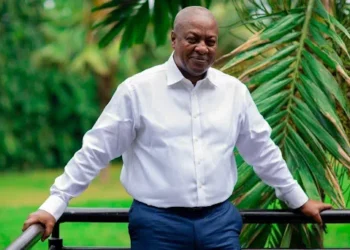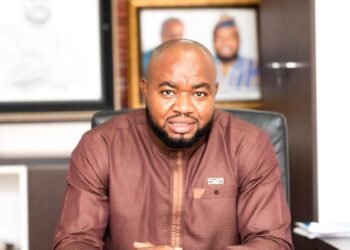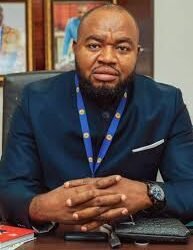In a rare emotional appeal, the Member of Parliament for Nhyiaso, Hon. Dr. Stephen Amoah, has broken political convention to call for an end to the prolonged conflict in Bawku, in Ghana’s Upper East Region.
Speaking in a live video broadcast, Dr. Amoah made a heartfelt plea to all Ghanaians, irrespective of political, religious, or ethnic affiliation, to come together and safeguard peace and life in the conflict-ridden area.
“I hardly do what I’m going to do, but I find it extremely important that I do this. I really don’t know where it will get to, but I’m speaking from my heart. I am begging this country without any partisanship or mischief.”
Hon. Dr Stephen Amoah, MP for Nhyiaso
Dr. Amoah directed his appeal to a wide spectrum of Ghanaian society — from government and security agencies to religious and traditional authorities — urging unified national action in addressing the humanitarian crisis in Bawku, which has seen years of violent conflict between rival ethnic groups.
“The government is not just about those in government. All of us together. Let us truly get involved in ensuring peace in the Upper East Region. Every individual who lives in the Upper East Region — it doesn’t matter the person’s ethnic background — is an integral part of our sovereignty as a country.”
Hon. Dr Stephen Amoah, MP for Nhyiaso
With his words deeply rooted in a message of unity and shared responsibility, the Nhyiaso legislator highlighted the devastating toll the conflict is taking on ordinary citizens — children, women, and men — many of whom are innocent and entirely detached from the core of the conflict.

“How can innocent people suffer the way they are suffering? Some of them are so innocent that they don’t even understand anything that’s happening in the region, and they are being killed… tortured… assaulted… threatened.
“They are being denied and deprived of their freedom, free movement, right to live, right to eat the right food. It is extremely painful.”
Hon. Dr Stephen Amoah, MP for Nhyiaso
Dr. Amoah acknowledged the underlying grievances and history behind the Bawku conflict but stressed that now is not the time for blame.
Supremacy of Humanity
In one of the most poignant moments of his address, Dr. Amoah urged the people of the Upper East to remember their humanity and cherish their lives above any ideological or ethnic differences.
He lamented the impact of the ongoing violence on education and economic activity in the region, drawing attention to the young schoolchildren — from kindergarten to senior high school.

According to him, most of the innocent children’s futures are being threatened by the instability, as well as the mothers in the markets trying to earn enough to feed their families.
“See the young ones in school — KG, primary, JHS, SHS — our mothers from the Upper East, in the markets… Going about their daily duties and businesses so they can have daily bread, so they can take care of the babies that are being breastfed. Please. Please. Please.”
Hon. Dr Stephen Amoah, MP for Nhyiaso
Dr. Amoah’s impassioned speech also included an appeal to Ghana’s religious institutions and moral leaders, challenging them to rise to the moment and fulfill what he believes is part of their divine responsibility.
“Where are the great religious leaders in our country? I am not criticizing you. I’m only begging you. I think this is part of the salvation process on earth. The practice of slavery was legal after all.”
Hon. Dr Stephen Amoah, MP for Nhyiaso

The MP’s unexpected intervention, coming from a region far removed from the epicenter of the Bawku conflict, serves as a powerful reminder of the national character of peacebuilding.
It also casts a spotlight on the need for broader solidarity and empathy in the face of protracted regional violence.
Dr. Amoah invoked the words of Ghana’s first President, Dr. Kwame Nkrumah, saying, “Whether he was right or wrong, it is a statement that we need to reemphasize: Are we capable of solving our own problems?”
His question, though rhetorical, carried a weight that resonates deeply in a country where ethnic, regional, and political divisions often challenge national cohesion.
In calling for Ghanaians to see the conflict in Bawku not as a distant tribal clash but as a shared national emergency, Dr. Amoah re-centered the conversation on humanity and the sanctity of life.
READ ALSO: PURC’s Decision, Bad News For Consumers – Energy Expert





















